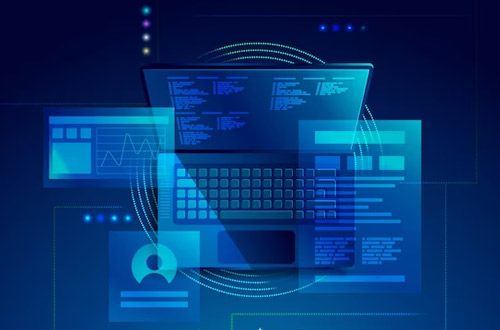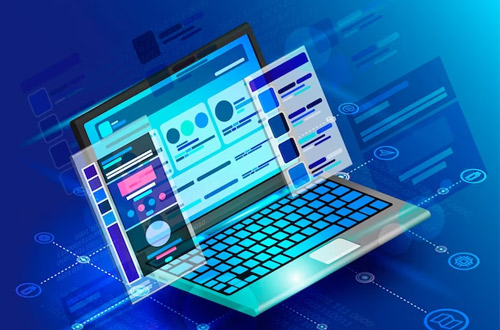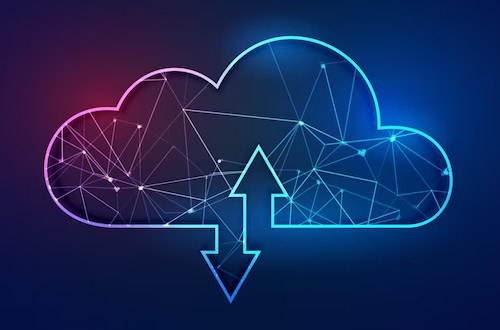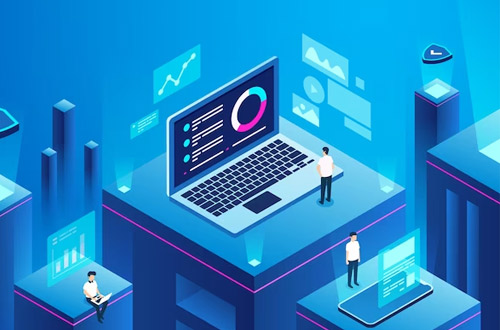The Fourth Industrial Revolution (Industry 4.0) is driven by advanced technologies such as database management, object-oriented programming (OOP), data structures & algorithms, which form the backbone of efficient software systems. Data science & analytics enable data-driven decision-making, while AI, machine learning (ML), and deep learning (DL) power intelligent automation and predictive modelling. Edge computing enhances real-time processing by decentralizing computation, reducing latency. Additionally, competitive coding skills sharpen problem-solving abilities, ensuring optimized and scalable solutions. Together, these technologies accelerate innovation, transforming industries through smarter automation, enhanced analytics, and seamless connectivity.
The Centres of Excellence established by Edunet Foundation in collaboration with SAP across the selected engineering colleges in Gujarat, Maharashtra Telangana and Karnataka will offer skilling opportunities to the students on the top emerging tech skills of Data Science & Analytics, Object Oriented Programming, Database management, Competitive Coding, Generative AI, and its predecessor Deep learning & Machine learning, Edge Computing, alongwith Industry Specific SAP tools like SAP ABAP Programming and Data Analytics Tools SAP Analytics Cloud & SAP HANA respectively. The program helps the student acquire the skills relevant to the current industry needs, and thereby gain a competitive edge in the job market.
The program curriculum caters to the 2nd, 3rd, and 4th year students from the partner engineering colleges as summarized below:
Content Type |
Duration (Hours) |
Delivery Type |
Delivery Mode |
|||
2nd Year |
3rd Year |
4th Year |
||||
1 |
Core Deep Tech Offering | ~55 |
~75 |
~35 |
Instructor led |
Hybrid |
2 |
Employability Skills | - |
~20 |
~15 |
Instructor led |
Hybrid |
3 |
Capstone Project | ~20 |
~30 |
~40 |
Instructor led |
Hybrid |
| Year-wise Total Hours | 75 |
125 |
90 |
|
|
|
The core technical content breakdown has been delineated below:
II Year - Foundation Course
Overview of Foundation Course:
The Foundation Course under Code Unnati Program will be offered to the second year students pursuing engineering and other technical degree courses. This course will cover the Python, Database management, Data structures & analytics pre-requisites required for Artificial Intelligence, Machine Learning, Deep Learning, Edge Computing & SAP industry ready tools mentioned in Code Unnati Advance and Value-Added Course for the pre-final/final year students.Learning Outcomes:
- Write efficient Python scripts for automation, web development, and data processing.
- Design modular, reusable, and scalable software using classes, inheritance, polymorphism, and encapsulation.
- Apply design patterns for robust software architecture.
- Implement and optimize key data structures (arrays, linked lists, trees, graphs, hash tables).
- Solve complex problems using sorting, searching, dynamic programming, and graph algorithms.
- Analyze time & space complexity for efficient solutions.
- Solve coding challenges efficiently and master advanced techniques to optimize code for speed and memory in programming contests.
- Design normalized database schemas and write complex SQL queries alongwith optimizing database.
- Solve real world data problem viz, data clean, transform, and analyze datasets using Pandas and NumPy.
- Identify latent aspects of data by performing statistical analysis (hypothesis testing, regression).
- Create interactive dashboards using visualization tolls and present insights effectively for business decision-making.
Foundation Course Outline (75 Hours)

- Introduction to Python
- Data Types & Variables
- Operators
- Control Flow (if-else, loops)
- Functions
- Modules & Packages
- Exception Handling
- File Handling
- Python Standard Library
- Mini Project

- Classes & Objects
- Constructors & Destructors
- Attributes and Methods
- OOP Principles
- Method Overriding
- Design Patterns
- SOLID Principles
- Mini Project

- Arrays & Linked Lists
- Stacks & Queues
- Trees
- Sorting & Searching Algorithms
- Dynamic Programming
- Greedy Algorithms
- Hashing
- Time & Space Complexity Analysis
- Mini Project

- Introduction to DBMS
- SQL Basics
- Advanced SQL
- NoSQL Databases
- ACID vs BASE Properties
- Mini Project
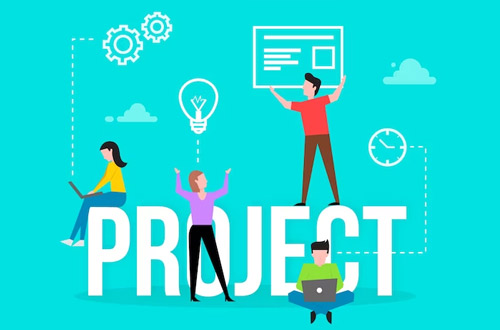
- Problem-Solving Techniques
- Time Complexity Optimization
- Greedy vs DP vs Backtracking
- Graph Theory Basics
- String Manipulation
- Bit Manipulation
- Number Theory
- Code Debugging & Profiling
- Mini Project

- Data Preprocessing & Cleaning
- Exploratory Data Analysis
- Statistical Analysis
- Data Visualization
- Feature Engineering
- Hypothesis Testing
- Business Intelligence Basics
- Mini Project

- Capstone Project is based on learning and students create prototype level solutions for real life problems.
- Design Thinking – Way to solve problems with creative thinking.
Machine Learning, Computer Vision, IoT, SAP Tech. Skills 5 Days Workshop
Workshop Objective/Outcome:
- To bridge the industry-academic gap by preaching the latest technology trends
- Exposure to different concepts, tools and algorithms in building intelligent systems through experiential learning
- Learn how to use Python libraries to develop Machine learning applications
- Use data analytics tools and technologies with ease
- Translate data-driven insights into decisions and actions.
- Equip themselves with knowledge in areas of Data Analytics, AI, ML and computer vision, Deep Learning
- Develop the SAP tech level skills to deploy applications based of SAP tools ABAP & Analytic Cloud
Workshop Prerequisite:
- Prior knowledge of basic python and its packages like NumPy, Pandas, and scikit-learn would be an advantage
- Working experience of Python Programming tools and IDE like Anaconda and Jupyter notebook
- Prior basic knowledge of Linux commands and familiar with Linux environment
Tools/Software requirements:
- Laptop/Computer with minimum i3 processor, 4GB RAM running with 64-bit Windows 10 or above along with access of internet connection with adequate speed.
- Anaconda for with python 3
Workshop Agenda:
| Sl. No. | Topic Description | Duration (30 Hrs.) |
| FDP Pre-assessment | ||
| Day-1 | ||
| 1. | Introduction – Workshop Agenda, Objective Data Analytics with Python · Numerical Python - NumPy · Pandas (Data Manipulation and data analysis) · Data Visualization Using Matplotlib and Seaborn Machine Learning Algorithms · Introduction – Machine Learning – Supervised, unsupervised ML · Linear Machine learning model (linear regression/ logistic regression and it's Evaluation matrices). | 6Hrs | Day-2 |
| 2. | Machine Learning Algorithms · Ensemble Machine learning models · Dimensionality Reduction Techniques (PCA) · Non-Linear Model (SVM & KNN) | 6Hrs |
| 3. | Deep Learning · Neural Networks – Neurons, Loss Functions, Weights · Gradient Descent and Back propagation · Convolutional Neural Network · Computer Vision – With Open cv and Keras | Day-3 |
| 4. | Hands-on session on Computer vision · Canny edge detection · Viola-Jones Algorithm for face detection · Face detection · Full body detection · Number plate detection | 6Hrs |
| 5. | IoT Fundamentals · Internet Usage and Population Statistics. · IoT in Technical Perspective. · Introduction to Raspberry Pi 4B. · Installation of operating system on Raspberry PI | Day-4 |
| 6. | Hands on with Raspberry pi and DFRobot · Hardware connection for DFRobot · Sensors and Actuators · LED interfacing with Raspberry PI · Light Sensor interfacing with Raspberry PI · Automatic streetlight · Button interfacing with Raspberry PI · Ultrasonic Sensor interfacing with Raspberry PI SAP Tech Skills SAP Business Technology Platform ABAP Environment · Understanding the SAP BTP platform · Creating a BTP ABAP Environment · Creating an ABAP Package | 6Hrs | Day-5 |
| 7. | ABAP RESTful Programming Model · Condition statement and looping with ABAP · Creating a Database Table · Create an ABAP Class · Conditional statement and looping with sap ABAP · Introduction of ABAP RESTful Application Programming Model · Developing a Read-Only List Report App · Enabling the Transactional Behavior of an App · Dealing with Existing Code SAP Analytics Cloud · Getting Started with Stories · Building Stories · Configuring Story Elements · Manipulating Data in Stories · Presenting Stories | 6Hrs |
| FDP Post assessment and Feedback | ||
